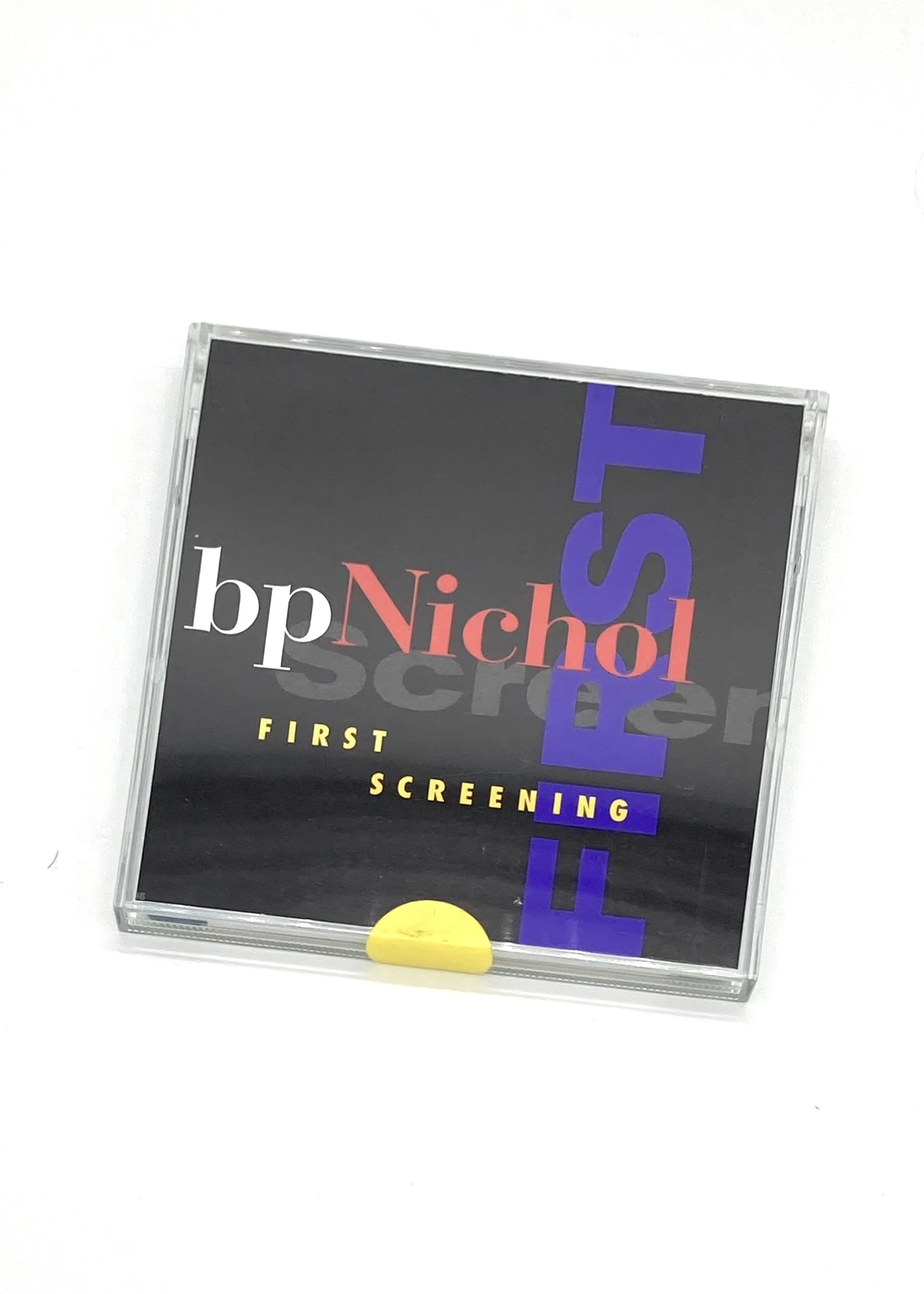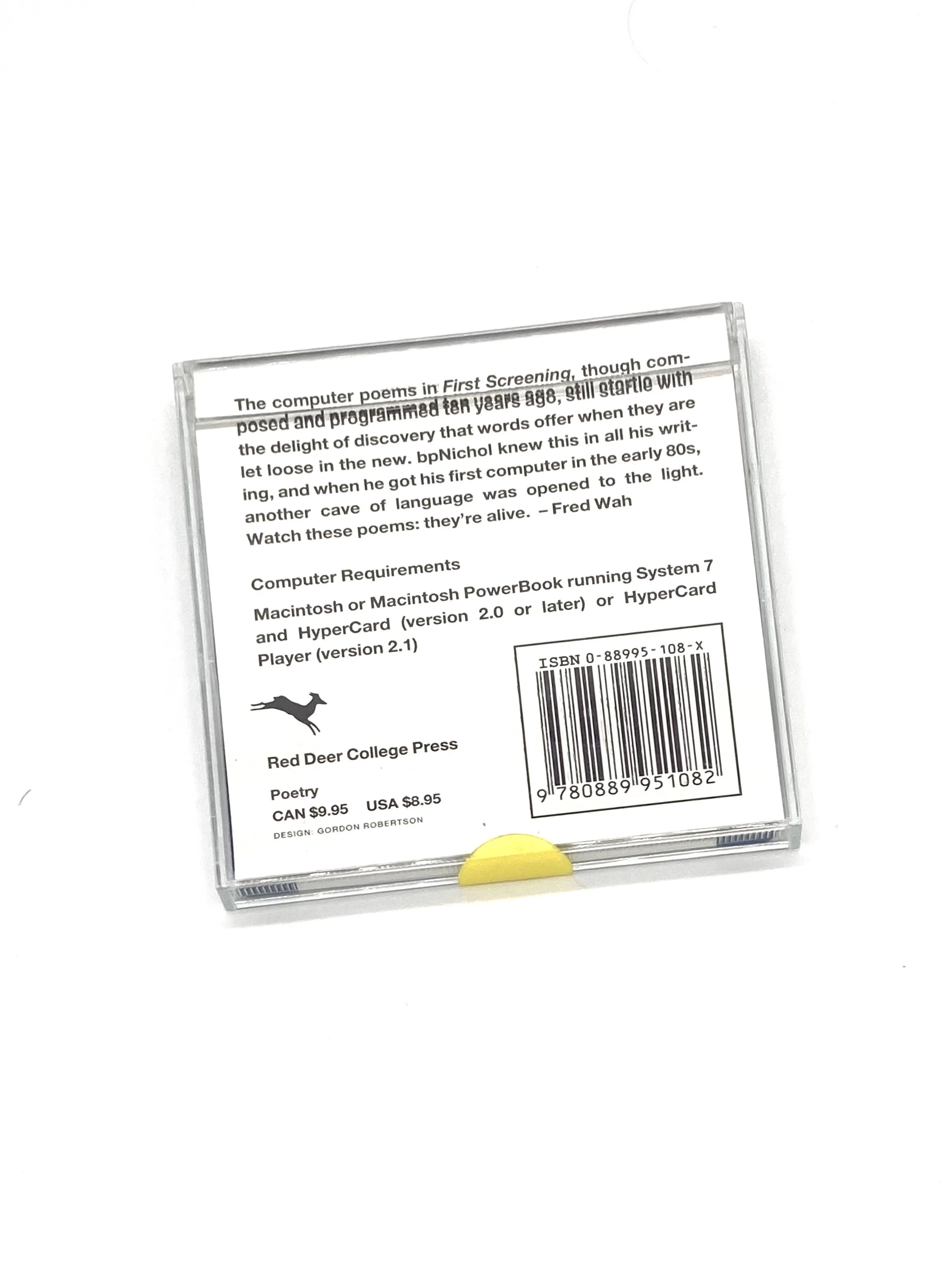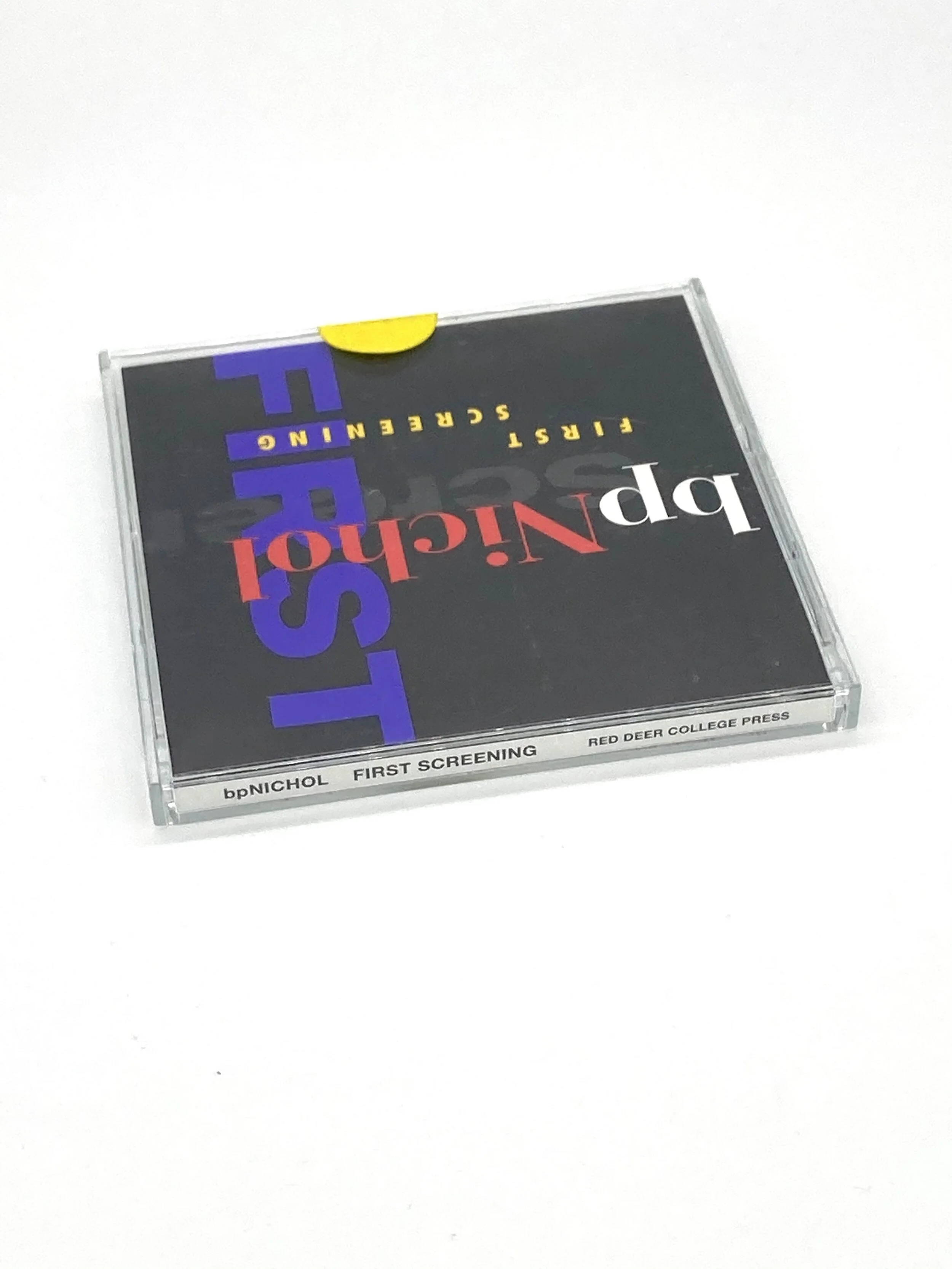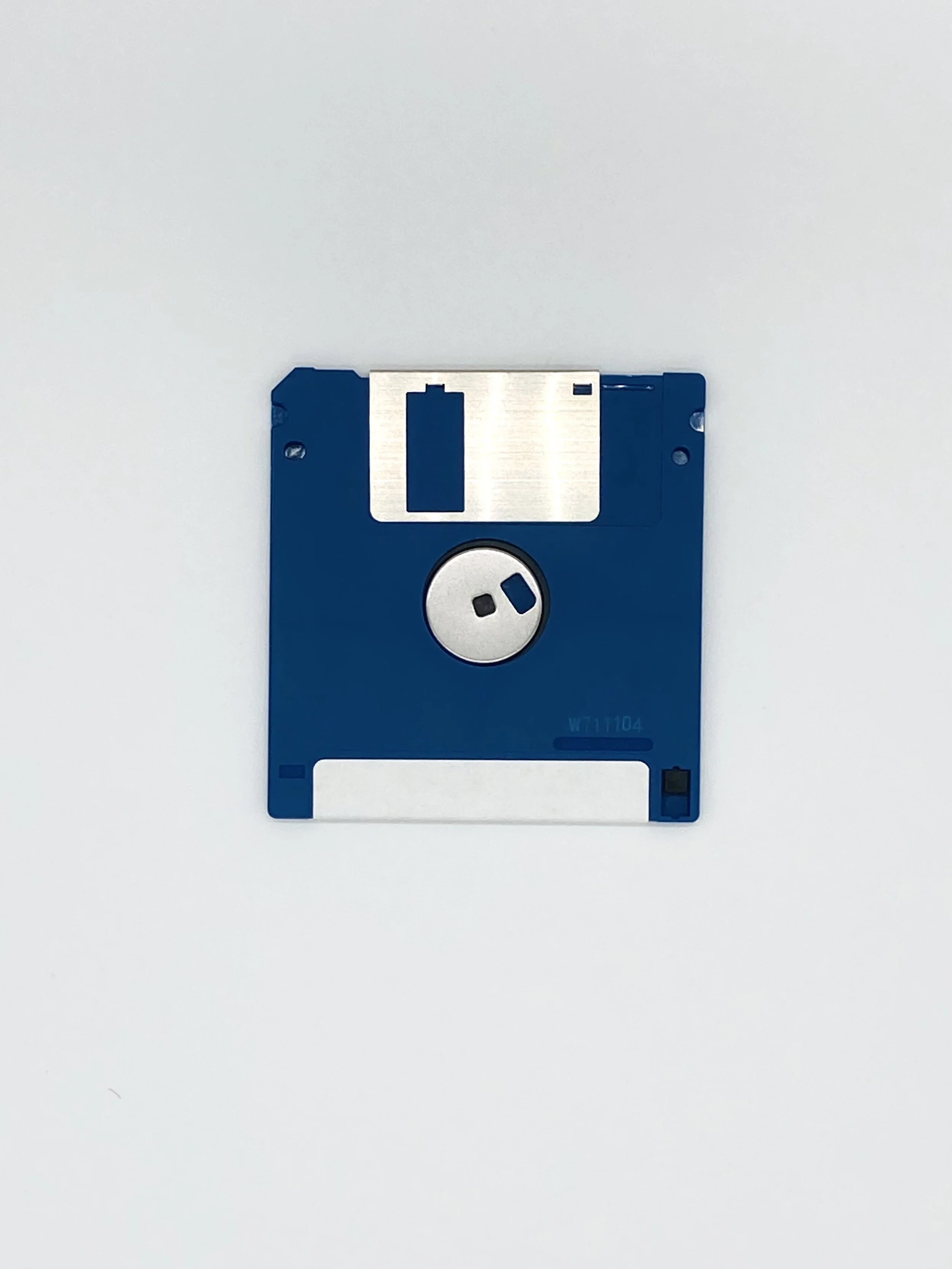First Screening (1993)
bpNichol
the second edition of a rare and vital software artifact
1993
[Red Deer, Alberta]: Red Deer College Press.
Second edition (first thus). 3.5” floppy disk with printed paper label, housed in clear plastic jewel case along with two color printed paper inserts: one folded once to form the front and back covers, and the other a [4]-page yellow leaflet printed black on all sides (containing operating instructions). 10 x 10 cm. (For an extremely detailed description, consult jwcurry.) This is the second edition, containing Macintosh HyperCard software. The first edition, comprising just 100 copies, was released on 5.25” floppy disk under bpNichol’s own Underwich Editions imprint in 1984. This copy is unsold stock, never opened and in new condition, with a sticker seal still affixed. The disk is untested and may have succumb to data loss, though the original contents are available here. Edition of 350. OCLC locates nine copies.
Accession Number: 2021.8.1
Around 1983, the Canadian experimental poet bpNichol purchased an Apple II personal computer and began programming in Applesoft BASIC. Within a year, he had cultivated a form of digital kinetic poetry that would inspire an entire generation of experimental writers. In these poems, bpNichol’s code work animates his influential concrete style, yielding iconic language constructions that exploit the computer screen through clever articulations in both space and time. For bpNichol, the experience of creating this work was revelatory:
What most surprised me in this process was how concerns that had been present for me in the mid-60's, issues of composition and content i was confronting while working with my early concrete poems, suddenly found a new focus. In fact, i was finally in a position to create those filmic effects that i hadn't had the patience or skill to animate at that time.
In 1984, bpNichol published a collection of these kinetic poems, entitled First Screening, under his own Underwich Editions imprint (as No. 1 in the Underwich Software Series, for which no subsequent titles appeared). Published on 5.25” floppy disk with a one-page author’s note, the original edition consisted of just 100 copies. The disks were, however, released with no copyright protections, and presumably many duplicates were made from the few official copies. The work would go on to inspire a generation of computer poets, earning immortality in the pantheon of electronic literature. Jim Andrews’s fabulous website devoted to First Screening includes video documentation of the original software in action.
By the early 1990s, bpNichol had passed away, and the Underwich edition of First Screening was stranded on obsolete hardware. In the interest of making the work available again, University of Calgary student J. B. Hohm obtained permission from Ellie Nichol, the author’s widow, to publish a second edition in a contemporary format. This resulted in a HyperCard port for Macintosh systems that was published on 3.5” floppy disks by Red Deer College Press, with the assistance of its proprietor, Dennis Johnson, and the poet Fred Wah. Intriguingly, a month before his untimely death in 1988, bpNichol had sent Johnson a revised version of First Screening meant for publication by Red Deer, but this edition never appeared.
Thanks to the preservation efforts of Andrew Ferguson of HyperCard Online, Red Deer’s second edition of First Screening may be experienced via emulation at the Internet Archive. In the software, Hohm provides an interesting “Translator’s Note”:
bpNichol did things with an Apple II that cannot be done with a Macintosh. In particular, the Apple II scrolling effect (used frequently in the original work) is not easy to translate. HyperTalk does support scrolling text fields but, like translating a verb tense from a foreign language with no equivalent English verb tense, the move from Apple II to HyperTalk scrolling was difficult and the result was awkward. I tried to achieve the BASIC effects using different HyperTalk tactics; however, if you were I and I was you, would you expect me to trust your translation? Probably (dare I presume?) not.
For a detailed account of Hohm’s porting effort, see Katherine Wooler’s master’s thesis.
The original Underwich printing of First Screening, an edition of just 100, is today incredibly rare. We have found no trace of a copy coming up for sale. In turn, this Red Deer edition comprises just 350 copies, and today it appears to be relatively scarce—this is unsurprising, given its material status as obsolete software on obsolete hardware. OCLC locates just nine copies in institutions across the world.
In August 2021, Aleator Press obtained a handful of unopened copies in pristine condition, of which all but this one was offered for sale (one of these was opened to photograph the disk).




